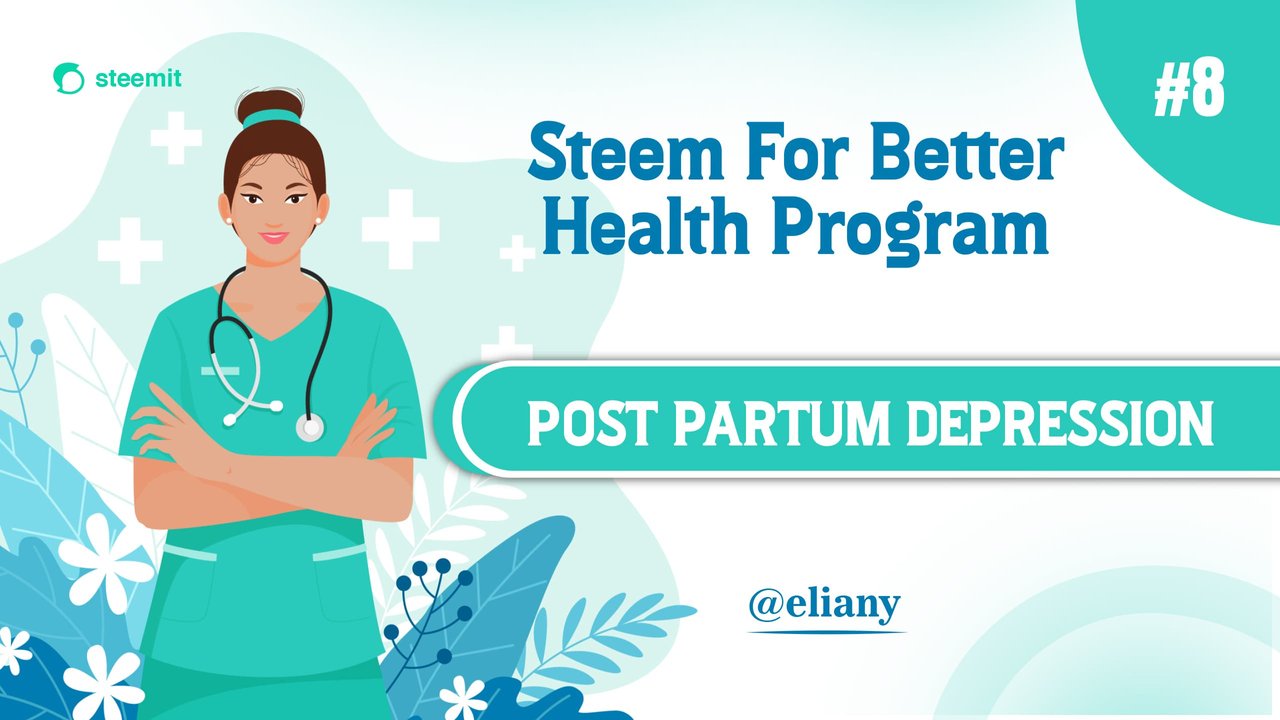
Welcome to this week steem for better health program, this week we will be talking about postpaturm depression.
Postpartum depression can be really draining. After visiting some of my friends that given birth this month, I discover that they are really struggling with postpartum depression and needed help to manage.
Having successfully referred them to a doctor for advice, I decided to write about it and of course it will be of help to other users. In this article, I pay attention to what is postpartum depression, types of postpaturm, causes and how to manage postpartum depression.
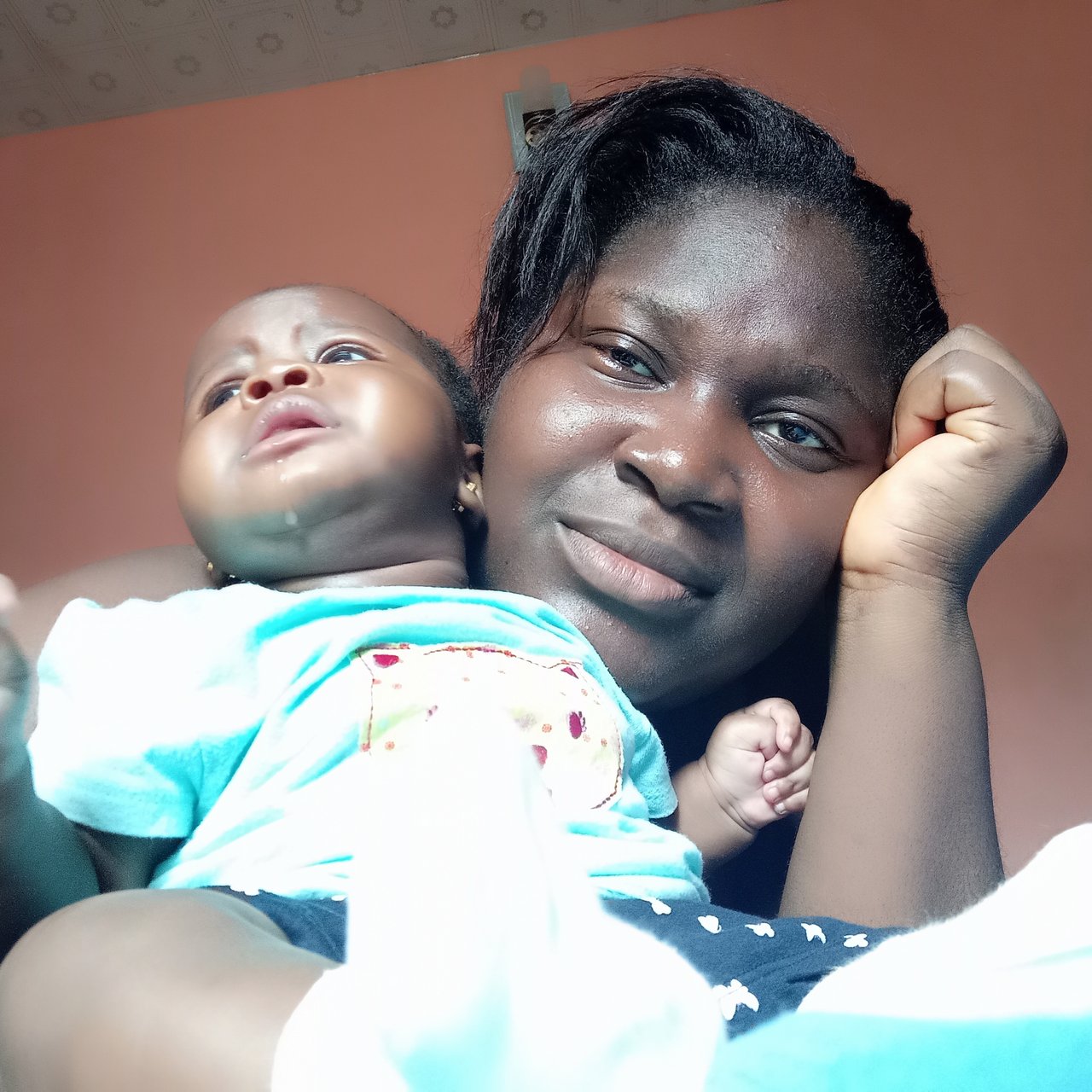
Baby crying all day can make you feel moody
My story; In my first week of postpaturm, I was in severe pains and I couldn't help myself even when my baby cry for breast milk, I find it difficult to get up and breastfeed her. Even though I had family and friends all around me who supported very well, I still cry when my baby cries for milk but I can't help, it was really challenging. Was I having postpaturm depressed? Find out from this post.
Postpartum depression is a type of depression that happens after giving birth due to some changes the body encounter during pregnancy.
As we all know, having a baby is a life-changing experience, although it is exciting it can also be tiring and overwhelming. But you know what? This feelings is really normal especially if you are a first-time parent.
Also remember that, postpartum depression does not just affect the mother giving birth. It can also affect surrogates and adoptive parents as well. My reason of saying this is because this is a also experiences hormonal changes, physical, emotional, financial and social changes after having a baby which can cause symptoms of postpartum depression.
Feelings include;
Sadness or loneliness
Severe mood swings
Crying frequently
However, if you have postpartum depression, do not blame yourself and feel guilty, just be assured that you are not alone in this. So rather than creating more harm to yourself, visit your doctor to help manage your symptoms and be fine
- Postpartum blues or baby blues
- Postpartum depression
- Postpartum psychosis
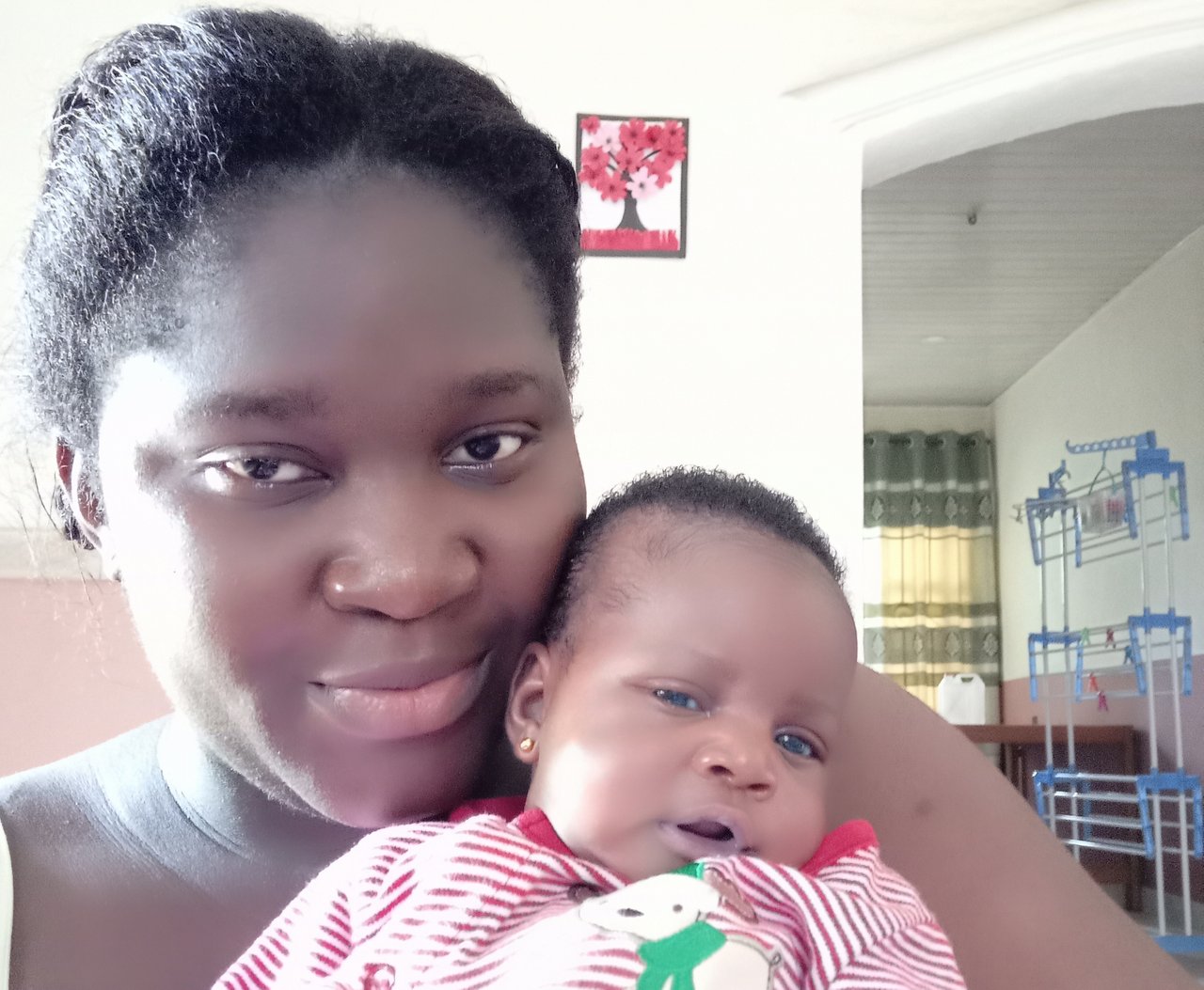
Exhausted at the end of the day
1. Postpartum blues or baby blues; This is mostly affected by women between 50% and 75% of women after delivery. Majority of women do experience this after birth, it usually begins in the first week i.e one to four days after delivery, the condition usually subsides within two weeks without any treatment. Rather than being panic, mothers need to remain calm and reach out to a doctor for guidance, your partner and friends for support.
Symptoms includes;
- Mood swings
- Anxiety
- Sadness
- Irritability
- Feeling overwhelmed
- Crying for no reason
- Reduced concentration
- Appetite problems
- Trouble sleeping
2. Postpartum depression; the symptoms here are more intense and last longer than baby blues. It is definitely severe than baby blues and needs medical attention to intervene. Please do not make the mistake of thinking that postpartum depression is baby blues, they are different and postpartum depression is more severe.
The symptoms it eventually interfere with the ability to care for baby and to take care or handle any other daily tasks. Symptoms usually begins earlier during the pregnancy and later develop within the first few weeks after giving birth and may last upto 1 year.
Symptoms;
Inability to sleep
The thought of harming either yourself or your baby
Difficulty to bond with your baby
Feeling of guilts
Although symptoms can last several months, consider treatment with psychotherapy or antidepressants is because it is very effective.
3. Postpartum psychosis; this is an extremely severe form of postpartum depression which usually requires emergency medical attention. It has an increased risk of suicide and risk of harming to the baby. To treatment this, will usually include hospitalization, psychotherapy and medication.
During pregnancy, the body undergo chemical changes which includes a rapid increase of estrogen and progesterone hormones and they drops immediately after delivery. Therefore, in three days postpartum, the levels of these hormones has drop back to pre-pregnancy levels.
Aside from these chemical changes the body experiences, there are other physical, social and psychological changes associated with having a baby increase your risk of postpartum depression.
Examples of these changes includes;-
- Changes to your body physical
- Loss of sleep
- Anxiety about parenting
Below shows gallery of some samples 👇
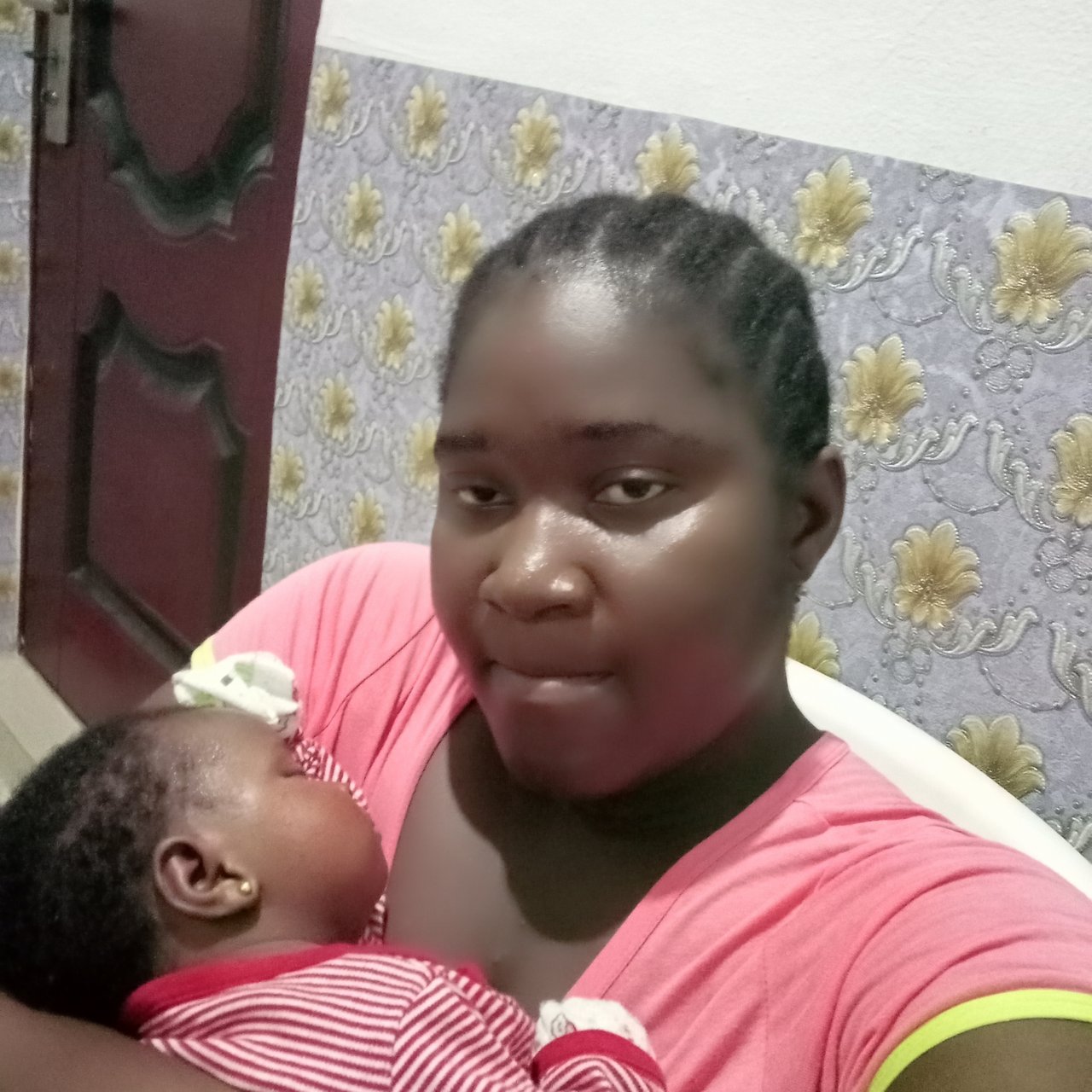
Sleepless nights
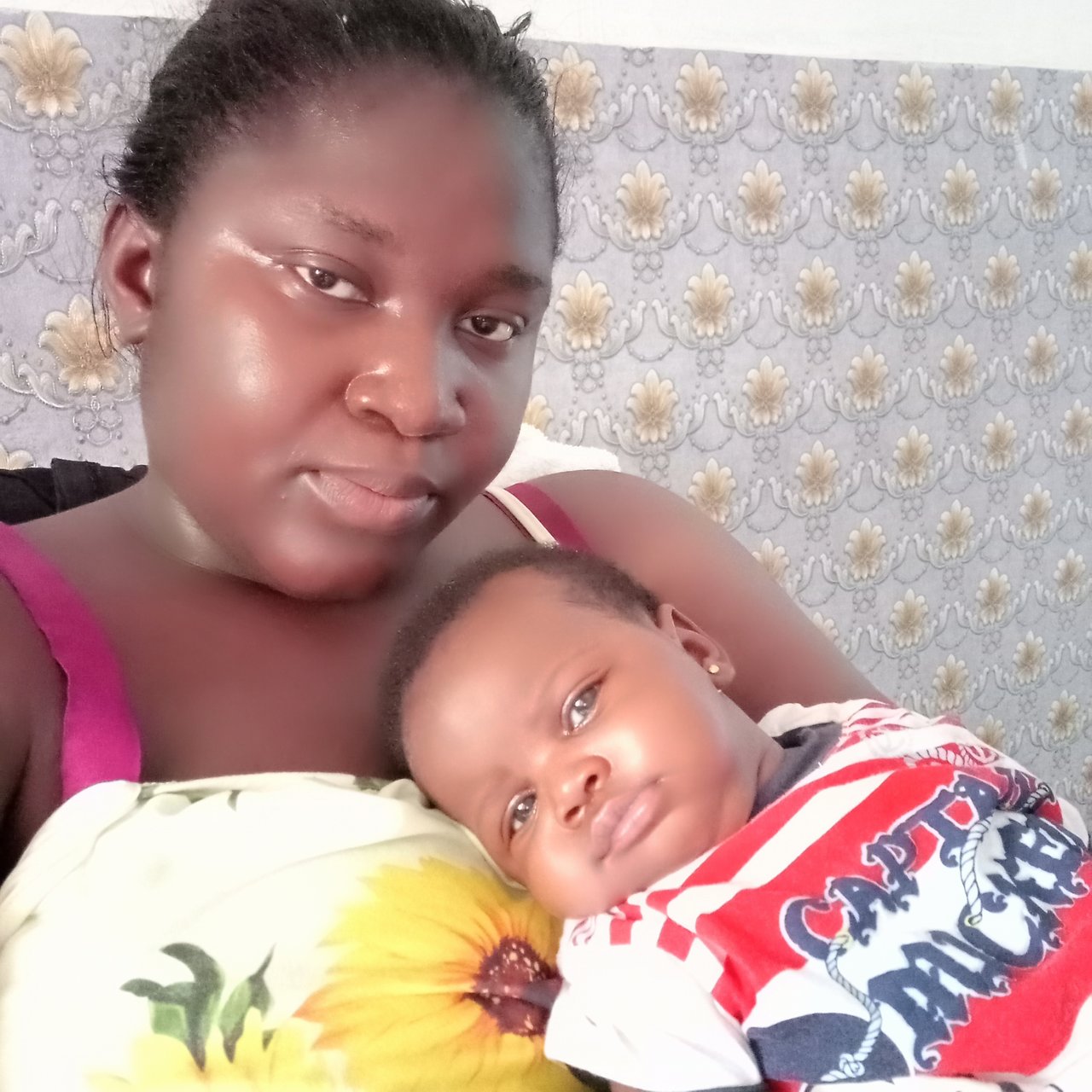
Sleepless nights
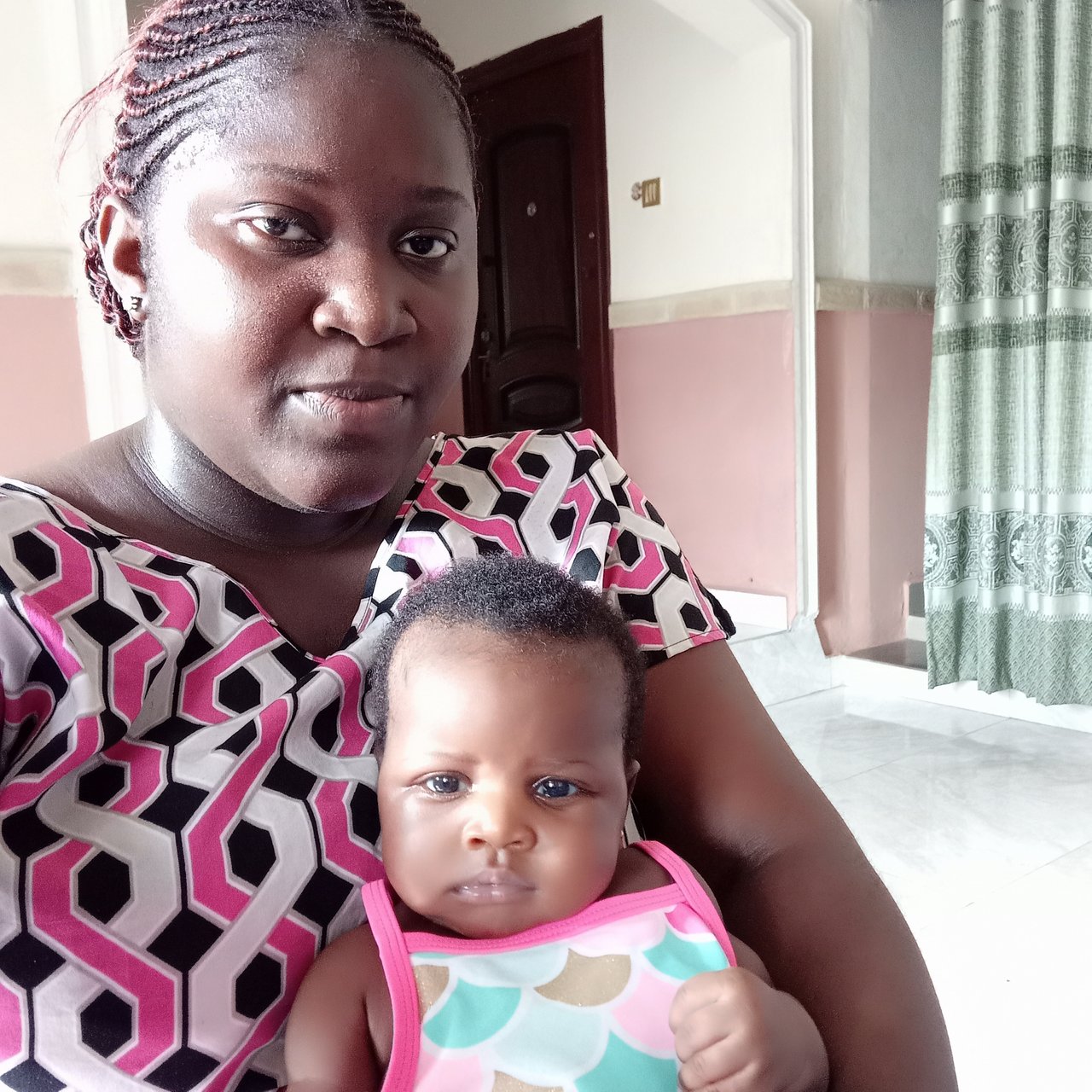
No sleep even in the afternoon
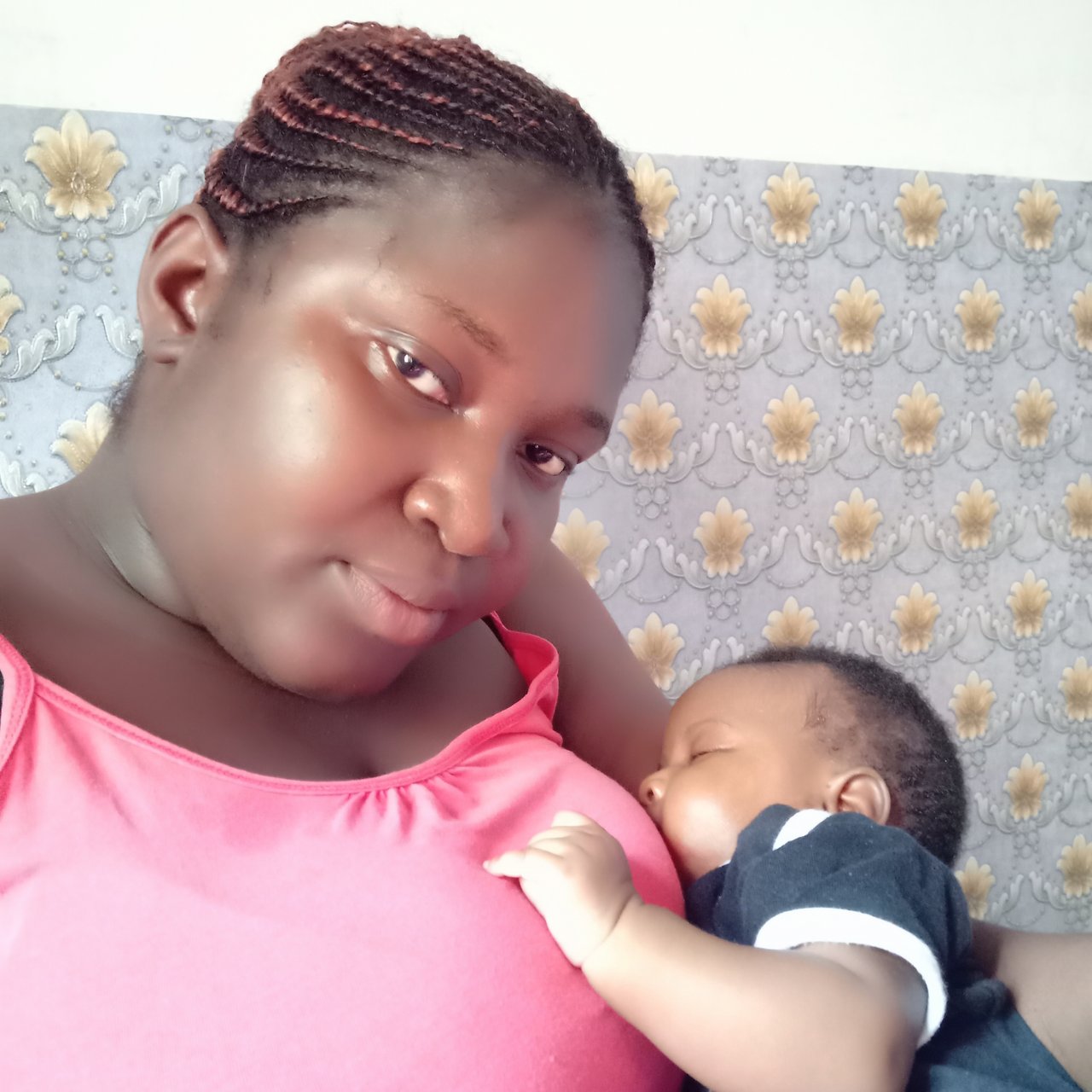
Suckling all through the night
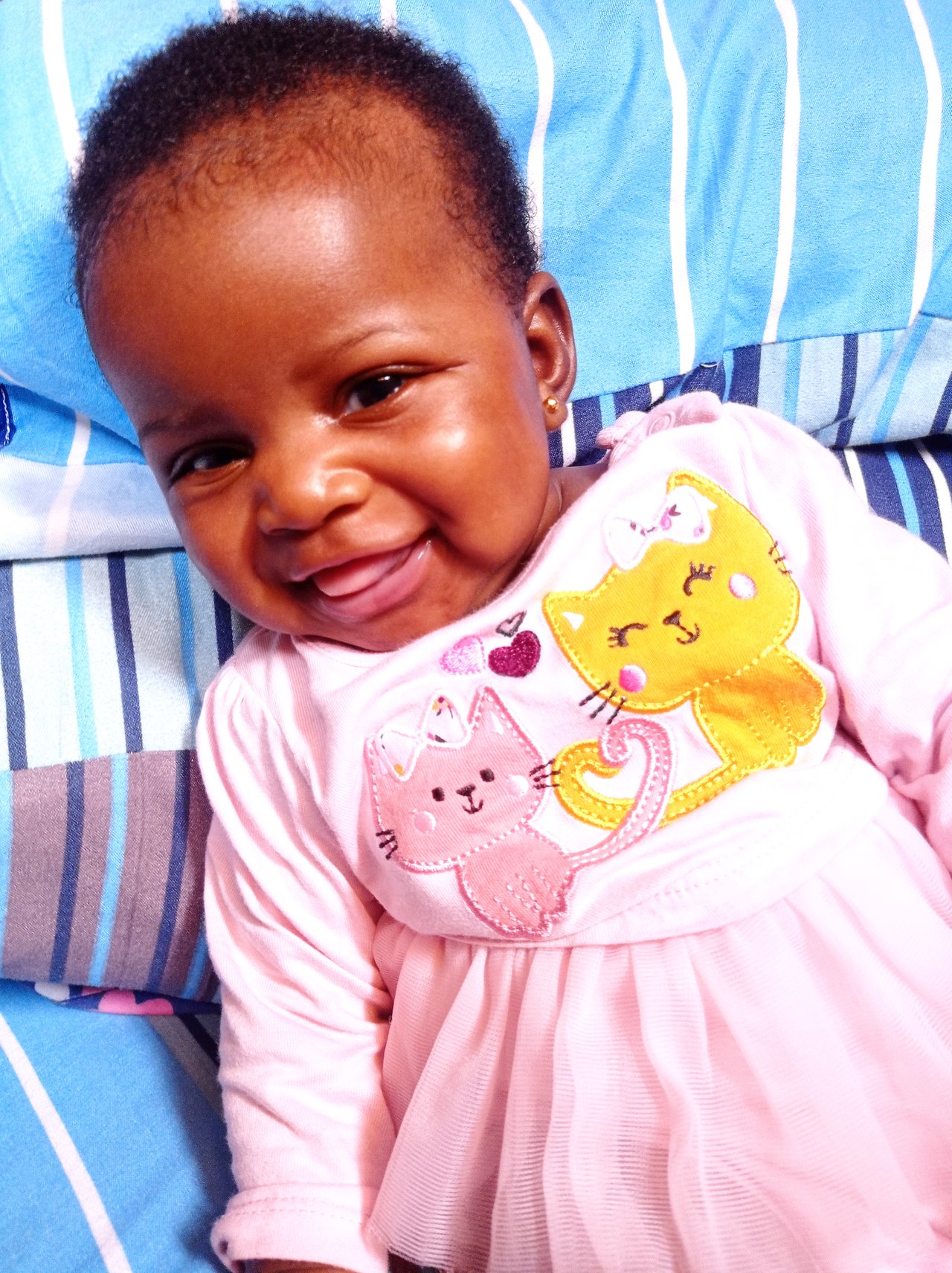
Healing smile
Even with all that stress, there is always joy at the end of the tunnel. So in as much as you cannot avoid the stress of sleepless nights, breastfeeding often especially if you are doing exclusive breastfeeding, and any other physical body changes, you can always put things in place to avoid being depressed. What can you do, How can you avoid it? You have to prepare your mind for what is ahead of you that is, while you are pregnant you should prepare your mind for any difficulties and challenges you will face as a mother.
So that when these things comes up, it will not be as a surprise to you, as you already know that you will face it and so your mind is prepared for it already. Believe me if you do this and most importantly, you have people around you to support you, talk to your husband then, definitely you will not experience depression of any type.
Postpartum depression can be managed or treated differently according to the type of depression and how severe the symptoms is. Therefore, when considering any treatment, try and talk to your doctor, partner and friends for help and support.
Please breastfeeding mothers, don't assume that you can't take medicine for depression, anxiety or even psychosis. Talk to your doctor, ok about your options.
Meanwhile I'm open for any question at the comment section and also feel free to go through my previous health post here
Read the preview health program introduction, #1, 2,3,4,5,6,7

